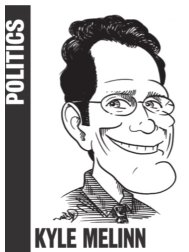More younger voters participated in last month’s Michigan election than in any primary in at least the last 10 years, a surge one statistical expert called a “pretty dramatic change.”
 Voters age 18-29 made up 6.77 percent of the universe of voting Michiganders on Aug. 7, a higher percentage than Michigan has seen since at least 1998. But it’s the raw numbers of voters that struck Mark Grebner of Practical Political Consultants in Lansing.
Voters age 18-29 made up 6.77 percent of the universe of voting Michiganders on Aug. 7, a higher percentage than Michigan has seen since at least 1998. But it’s the raw numbers of voters that struck Mark Grebner of Practical Political Consultants in Lansing.
In 2014, 49,000 18-to 29-year-olds voted in the primary, making up 3.72 percent of the 1.3 million voters. Keep in mind the Republican and Democratic gubernatorial contests were not contested that year. However, this year, almost three times as many younger voters — 143,000 — cast a ballot in an election that drew a modern-day record 2.209 million people, according to final numbers from the secretary of state.
Meanwhile, the percentage of 30-to 39-year-olds increased at about the same rate. In 2014, the 5.63 percent of primary voters were 30-somethings. In 2018, that percentage shot up to 9.18.
Since 1998, the highest primary election turnout was in 2010, when 1.63 million voters showed up to vote in contested Republican and Democratic gubernatorial elections. The 2018 number is 30 percent higher than that.
“In the primary, I kept guessing 1.85 million voters, with the possibility of as many as 2 million, and I was scoffed at,” Grebner noted. “This fall, I’m guessing 3.5 million voters, roughly half a million more than previous gubernatorial elections. The electorate will be younger and more Democratic than recent gubernatorial elections. And, who knows, I may be wrong again, on the low side.”
As it has done for several years, the Lansing Clerk’s Office set up a table on the Lansing Community College campus to make it more convenient for interested students to register to vote. In years’ past, they’ll see five or 10 students register a day. If they got 50 students to register, it’s a good turnout.
This year, Lansing Clerk Chris Swope said they registered 300 students over four or five days.
“They really seem more into it,” he said. Michigan is not an anomaly in this.
Pennsylvania is reporting that registered voters 34 and younger now outnumber those 65 and older, according to The New York Times. Arizona, New York, Florida and Virginia have also “seen sharp increases,” the Times reported.
“Not to use a corny word, but they’re pumped,” said Cayley Winters, a recent 23-year-old Michigan State University graduate who returned to her hometown, Battle Creek, last year to work as a nurse aide until realizing she liked politics more.
Now, her full-time job is political organizing and getting college students to register to vote. She’s working for NextGen America, a 5-year-old environmental and progressive advocacy political action committee funded by billionaire fund manager Tom Steyer.
With an initial $3.5 million investment, NextGen Michigan is registering and organizing voters across the state with a focus on flipping the 7th, 8th and 11th congressional districts. The southeast Michigan 7th includes Eaton County.
The 8th comprises Ingham County, Livingston County and northern Oakland County.
NextGen has registered 26,776 Michigan voters since January with more than 20 staff and fellows on the ground.
“It’s not necessarily about the numbers,” Winters said. “It’s more about preparing people to vote and to help them realize that politics is not some far-away thing. It impacts our lives every day.”
Take the cost of college tuition, for example. Winters had helped lead a survey of 12,654 college students and found that 71 percent are concerned about the cost of going to college and don’t believe Congress is doing enough about it.
Those considered Millennials and Generation Z are not represented with any notable numbers in Congress. According to a 2016 Bloomberg report, five members of Congress were 25 to 35 years of age. The U.S. Constitution requires a person be at least 25 to serve in the House.
Still, 270 members of Congress, more than half, were 52 to 70 years. The college students Winters runs into on the campuses of MSU, LCC, Aquinas and other schools on the state’s west side understand what’s going on, she said.
“The older generation has said they would take care of politics for us, but they are not representing us in Congress,” she said. “They’re not talking about the issues we care about so we have to take matter into our own hands.”
Kyle Melinn of the Capitol news service MIRS is at melinnky@gmail.com.
Support City Pulse - Donate Today!
Comments
No comments on this item Please log in to comment by clicking here